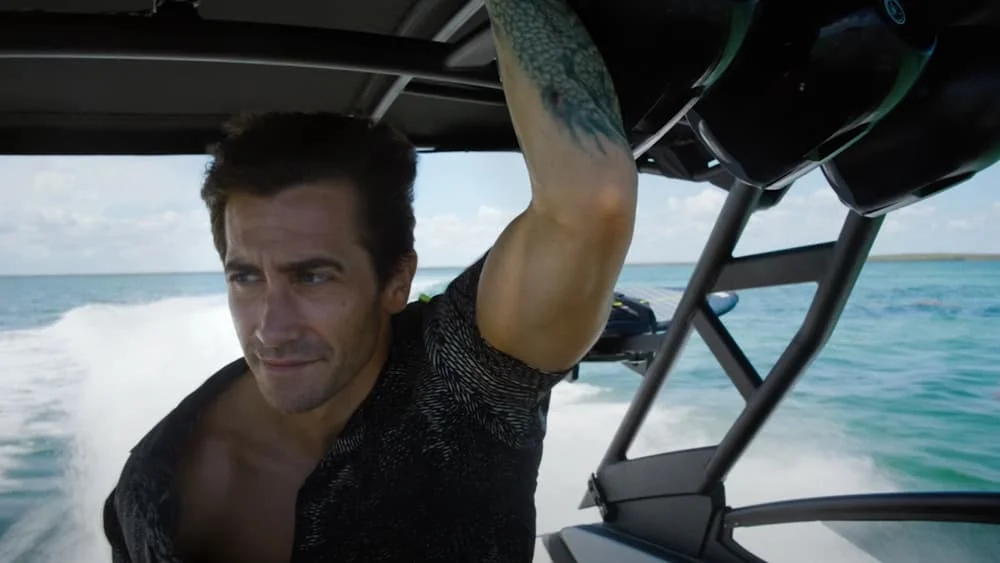Are there people excited for a new “Road House” movie? I pose that question in two ways: is the “Road House” IP so valuable that Amazon would part with $85 million to throw it into the void of streaming, and are audiences unable to get what a movie like “Road House” provides elsewhere? It’s not like this macho action B-movie stands alone in a sea of direct-to-streaming content that churns movies like this out every other week, and it certainly didn’t in the 1980s. So why make this movie in the first place? If it wasn’t a paycheck, director Doug Liman and writers Anthony Bagarozzi and Charles Mondry must have seen some potential in that vapid 80s schlock to reach for something more: a deconstruction of genre tropes and darker, satisfying character drama. It fails miserably.
That is not to say “Road House” is trying to be high art, but the film does want to be smarter than other films like it. It wants to be intellectually stimulating as well as viscerally engaging. There is nothing wrong with that in theory, but in doing that, the film loses a sense of what it actually is and why people are there to see it. The film acknowledges its regurgitated mid-century Western formula but does nothing to deconstruct it. It sticks to that formula so closely that you feel the screenwriters’ shame each time a character brings up how Dalton is like a wandering cowboy coming to save the town from powerful, monied interests. There’s also plenty of traumatic backstory for Dalton — his guilt and remorse for killing someone in the Octagon when he was a UFC fighter — but it only serves to give the character an appearance of depth. In reality, Dalton is still a generic tough guy with a troubled past, and Jake Gyllenhaal fails to bring any life or personality to him. It’s a role needing a movie star, like Patrick Swayze, and not having a Swayze-type makes him unbearable.
“Road House” could overcome these ill-advised choices by having expertly crafted action sequences, but it doesn’t. Liman makes two fatal decisions in his direction of the fights that take the physicality out of them and create only dull, ugly images. One comes in the constant use of a wide-angle lens in close-ups. Because this distorts the features of the actors and the environments, it breaks any sense of reality and makes everything feel inhuman. As a result, every fight feels weightless and viscerally unsatisfying. An uncountable number of punches are thrown in the film, and you don’t feel a single one. The other major issue is the digital effects stitching of almost every hit. The edits are visible and destroy any sense of flow in these fight sequences. This compounds the problem of the lens-created distortion and makes the action unbearable to watch. Even worse, with all of this extra character work, the pacing grinds to a halt. An action B-movie like “Road House” should never have the kinds of long stretches without some form of set piece that it does.
Would this movie be any better if it weren’t milking the “Road House” IP? Probably not, though maybe a significantly lower non-IP budget would force Liman away from heavy digital effects usage and toward something more tactile. That fact is most of the reason why it fails. It’s not that it doesn’t understand “Road House” as a property, but that it doesn’t understand the appeal of a movie like it in the first place. Its expansions beyond the source material might make the premise and characters slightly stronger (a low bar), but the performances and action staging are so poor that the film becomes devoid of any charm. It attempts to update and capitalize on a cult classic without any idea of why a movie like that may garner a cult following in the first place.

